Social Ethics
In Dubai, there are many different cultures and nationalities. It’s important to respect the culture, customs, and traditions of the United Arab Emirates. Be polite, moderate, and avoid inappropriate behavior.
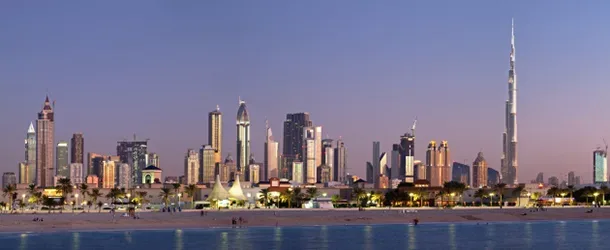
Respect the Symbols of the State
Show respect for the rulers, flag, and national emblem of the United Arab Emirates. It’s a crime to misuse or disrespect these symbols.
Dress Code and Decency
When visiting official government buildings, business buildings, and office towers, follow an appropriate dress code. In public places like streets, malls, and restaurants, wear clothes that cover appropriately and avoid revealing or offensive clothing.
Behavior at Beaches
At beaches, wear conservative swimwear that is acceptable in Dubai. Nudity is strictly forbidden throughout the city, and swimwear should not be worn outside the beach areas.
Public Displays of Affection
Public displays of affection, like kissing or petting, are not considered appropriate in Dubai. Holding hands is tolerated for married couples, but be mindful of public decency.
Dancing and Music
Loud music and dancing are not allowed in public places such as parks, beaches, or residential areas. They should be restricted to licensed venues.
Maintaining Public Facilities
Keep public facilities, such as parks, benches, and bus stops, in good condition. If you notice any damage, inform the relevant authorities.
Substance Abuse
In Dubai, alcohol and drug consumption is strictly prohibited due to religious and cultural reasons. The laws regarding alcohol consumption are closely regulated due to the diverse population.

Drugs
It is a crime to possess, use, buy, or sell any kind of drug, regardless of the quantity.
Alcohol Consumption
Alcohol consumption is only allowed in designated areas, such as licensed restaurants and venues. Being under the influence of alcohol outside these areas can result in fines or even imprisonment.
Driving and Alcohol
Driving under the influence of alcohol is strictly prohibited. Even a small amount of alcohol can lead to fines, imprisonment, or deportation.
Buying Alcohol
Alcohol can only be purchased from licensed stores by non-Muslims holding an alcohol-purchasing license. Respect local customs by carrying alcohol discreetly in paper bags. The licence is free to get, it will only require to show your passport and a temporary licence can be used on the spot – as a photo on your phone – till you get the physical card.
Smoking and Prescriptions
Smoking is not allowed in government facilities, offices, malls, or shops. Some medicines containing psychotropic substances are forbidden in the UAE, and visitors should carry a prescription for allowed medicines
Safe Driving
Traffic congestion is a growing concern on Dubai’s roads. By following simple security and courtesy rules, we can make the roads safer and more user-friendly. It’s important for all road users to show respect and consideration for one another.
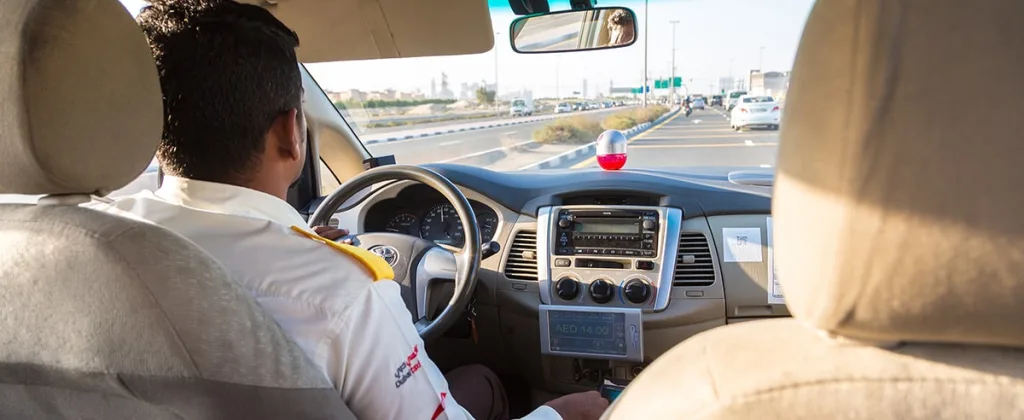
Speeding
To ensure everyone’s safety, it’s crucial to obey speed limits clearly indicated on road signs. Dangerous activities like car racing and driving too slow in the fast lane should be avoided. Many roads in Dubai are monitored by radars, and the fines for speeding are high.
Tailgating and Lane Discipline
Driving closely behind other cars, flashing headlights, constantly changing lanes, and overtaking recklessly are hazardous practices that can result in fines.
Safety Belts
Drivers and passengers must wear their seat belts at all times. Not wearing seat belts is against the law and can lead to fines. Children should be seated in the backseat.
Mobile Phones
Using a mobile phone while driving is illegal. Phones should be turned off before starting the car, or if necessary, use a hands-free kit or headset.
Emergency Vehicles
When you hear sirens from police cars, fire trucks, or ambulances, you should give way as quickly as possible to allow them to pass.
Accidents
It’s important not to slow down or stop to look at traffic accidents out of curiosity, as this can cause traffic congestion. If involved in a minor accident, drivers should move their vehicles to a safe location to avoid danger and traffic disruption.
Parking
Drivers should park their cars thoughtfully in designated areas and avoid parking in spots designated for individuals with special needs.
Pedestrians
Drivers should always stop for pedestrians and respect their right of way at crosswalks. Similarly, pedestrians should use designated zebra crossings when crossing the road.
Bicycles and Motorbikes
Motorbike riders must have a valid license, wear helmets, and stay on designated routes. They should avoid speeding and reckless driving.
Cycling is encouraged as a healthy and environmentally-friendly mode of transportation. However, cyclists must adhere to cycling paths for their own safety. Not following cycling path rules may result in fines.
Weather Conditions
Drivers should be aware of abnormal weather conditions such as thick fog and sandstorms. It’s important to adjust driving speed accordingly to ensure safety on the road.
Mutual respect
In Dubai, personal freedoms are protected, but they should not endanger people’s lives, health, security, or liberty. These freedoms must be exercised within the laws of the UAE.
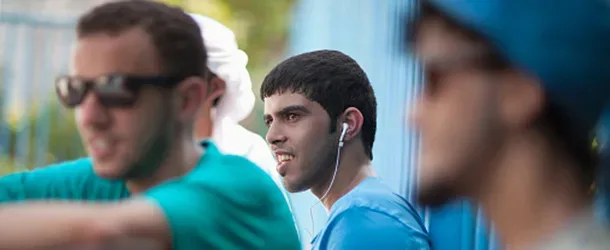
Respect for Cultural Differences
Dubai values cultural diversity and treats people equally regardless of their nationality or race. Mutual respect is the foundation of Dubai’s community, promoting security and peace.
Insults and Offensive Behavior
Using swear words, insults, vulgar language, or making offensive gestures is strictly prohibited and can result in legal consequences such as fines or imprisonment.
Queuing
Being patient and respecting queues is a common courtesy in Dubai. Cutting in line is not allowed, and priority should be given to the elderly, people with special needs, and pregnant women.
Keeping Noise Levels Down
Respecting public places means avoiding loud conversations and answering phones in places where it may disturb others, such as movie theaters, conference rooms, quiet shops, restaurants, and hospitals.
Spreading Rumors
Spreading false news, statements, or rumors that disrupt public security and harm public interest is a serious crime and is punishable by law.
Photography
Taking photos of people in public places, especially women and families, should be done with their permission. Taking photos of people is considered sensitive in Dubai’s local culture.
Begging and Street Vendors
Begging is prohibited in all parts of Dubai, and selling goods or services without a proper license is illegal.
Environment
In the face of global climate change, everyone has a duty to protect the environment, reduce waste, and save resources.
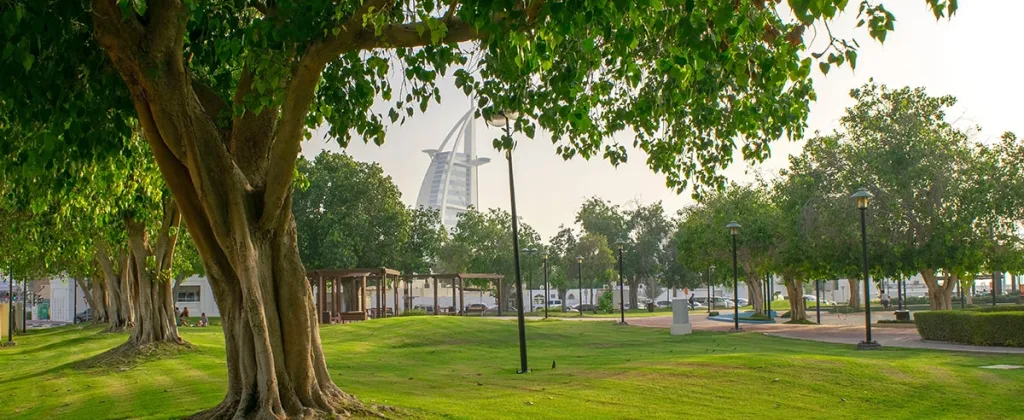
Conserving Resources
Given Dubai’s desert environment and limited fresh water sources, it is crucial to conserve water and avoid unnecessary waste. Saving energy by turning off air conditioning and electrical appliances when not in use is also important.
Waste Reduction
Whenever possible, recycling should be practiced to reduce waste. Using recycled products and adopting environmentally-friendly behaviors are encouraged.
Respecting Nature
Marine Environment Preservation: All activities that harm the marine environment or endanger marine life through pollution are prohibited. Fishing is allowed only with the proper authorities’ license.
Desert Environment Preservation
Hunting wildlife, threatening biodiversity, or causing harm to the desert environment is prohibited. Camping in the desert requires a license from the appropriate authorities.
Proper Pet Management
Pet owners are responsible for any damage caused by their animals and must clean up after them in public places. Dogs are not allowed in parks or beaches, and they should be kept on a leash in other public areas.
Littering and Spitting
Spitting in public and littering waste, including cigarette butts, are considered offenses and can result in fines.
Respect for Religion
In the face of global climate change, everyone has a duty to protect the environment, reduce waste, and save resources.
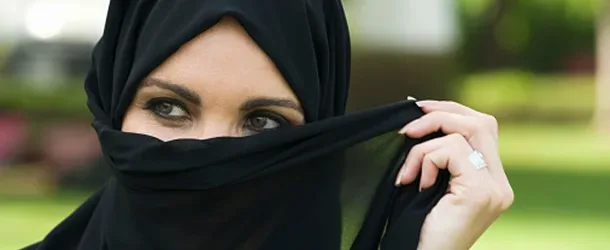
Prayer Time
Muslims pray five times a day, and when the call to prayer is heard from mosques, it is important to turn off music in public places and cars. Muslims should be given the opportunity to perform their prayers.
Ramadan
During Ramadan, Muslims fast from dawn to sunset. It is a public offense to eat, drink, or smoke in public spaces during daylight hours and is punishable by law. While it is not recommended, the tolerance has increased over the years.
Religious Activities and Celebrations
Any religious activity, whether Islamic or not, requires a license from the appropriate authorities.
Offence and penalty table
| Offence | Penalty |
|---|---|
| Public display of affection | Warning or fine (in severe cases, may lead to jail and/or deportation) |
| Alcohol consumption outside designated areas | Fine or jail |
| Buying alcohol without an alcohol license | Fine or jail |
| Driving under the influence of alcohol or drugs | Fine, jail, and/or deportation; car confiscation |
| Drug consumption or possession | Fine, jail, and deportation |
| Lack of respect for Islam’s customs and symbols | Fine, jail, and deportation |
| Lack of respect for other religions’ customs | Fine or jail |
| Vulgar language | Fine or jail |
| Littering and spitting | Warning or fine |
| Pet fouling public areas | Warning or fine |
| Damaging public facilities | Fine |
| Lack of respect for the environment | Warning or fine (cf. Federal Law No. 24/1999 on the protection and development of the environment) |
